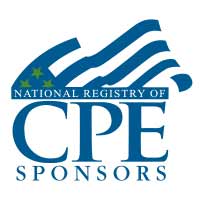We currently have no scheduled session for this Course. If you are interested in running this course, please contact our Training Department at [email protected]
INTRODUCTION
The production of gas and oil is often accompanied by water, either from the formation, from condensation, or from water injected as lift assist. Acid gases, such as hydrogen sulfide (H2S) and carbon dioxide (CO2) are often present in produced fluids, and oxygen is sometimes a contaminant in the water used for injection. These acid gases increase the corrosivity of the waters to steel, and can significantly impact the safe operating life of production tubulars and equipment, production vessels, and transportation systems.
The presence or absence of multiple phases (gas, water, and oil or condensate) in the same system can complicate the problem of controlling corrosion. Internal corrosion in a tubing string, vessel, or pipeline can have a significant impact on corrosivity and is influenced by conditions such as temperature, the flow regime or pattern of fluids, water wetting and composition and surface condition of the steel in a tubing string, vessel, or pipeline can have a significant impact on corrosivity.
The potential consequences of internal pipeline corrosion represent both safety and economic concerns to various sectors of the industry. Mitigating corrosion is critical as the initiation corrosion cells can negatively affect the integrity of the pipeline in service. Additionally, the build up of corrosion and bacterial by-products on the pipe walls can cause problems at later stages of a pipeline’s operation life including under-deposit corrosion and contamination of fluids passing through the pipe.
The pipeline costs are a considerable part of the investment in the petro chemical industry, and for long-distance, large-diameter pipelines, they can become prohibitively high if the corrosivity of the fluid necessitates the use of corrosion-resistant alloys instead of carbon steel. Better understanding and control of the corrosion of carbon steel can increase its application range and therefore have a large economic impact.
Corrosion occurs in various forms, such as pitting corrosion from water droplets, embrittlement from hydrogen, and stress corrosion cracking from sulfide attack. Corrosion is fought by a complex system of monitoring, preventative repairs and careful use of materials.
This GLOMACS Oil & Gas Technology training seminar on Corrosion Control in Gas, Oil and Water provides an overview of refinery process units and specific process descriptions, and focuses on the examination and identification of metallurgical problems that occurs in process units and methods of monitoring and damage reduction.
Objectives
At the end of this GLOMACS training seminar participants will have learned about:
- Corrosion Principles and Mechanisms
- Types of Corrosion that are related to the Oil, Gas and Water
- Materials of Construction for Refinery Applications
- Corrosion Monitoring and Inspection Methods
- Aspects of Corrosion Inspection and Anti-corrosion Management and Mitigation
Training Methodology
This GLOMACS Oil & Gas Technology training course on Corrosion Control in Gas, Oil & Water (Fast Track) combines structured and focused presentations and discussions of topics covered with relevant examples and question & answer sessions to maximize the benefits to the participants. Participants will be provided with comprehensive course notes and copies of all presentation material. These will be very valuable for detailed study and future reference.
DAY 1
Introduction to Corrosion
- General corrosion, Corrosion mechanisms, Types of corrosion, Causes of corrosion failures
DAY 2
Parameters influencing Corrosion in the Refining Industry
- Different hydro carbon streams, Sulfur, Acidity, (TAN) number, pH Control, Desalting, Distilling, High and Low temp corrosion
DAY 3
Types of Corrosion in the Refinery Industry, related to Oil, Gas and Water
- Wet H2S cracking, Causes, Hydrogen Induced Cracking and stress-oriented hydrogen induced Cracking (HIC/ SOHIC), Hydrogen Blistering.
- Naphthenic Acid Corrosion
- Carbonate Cracking (CC)
- Chlorine Stress Corrosion Cracking
- Ammonia Stress Corrosion Cracking
- Caustic Cracking
- Amine Plant Corrosion
- Microbiologically Induced Corrosion (MIC)
- Pitting Corrosion
- Erosion Corrosion
- Crevice Corrosion
- Corrosion Under Lining
- Bimetallic Corrosion
DAY 4
Materials of Construction for Refinery Applications
- Common Materials in the Refinery Industry
- Carbon Steel
- Low Alloy Steels containing chromium and molybdenum,
- Stainless steels
- Nickel based alloys
- Selecting the proper material for the application
DAY 5
Corrosion Protection and Monitoring
- Coatings and linings
- Inhibitors, Types, Efficiency, Selection, H2S scavenger, Batch and continuous injection treatment
DAY 6
Corrosion Monitoring Methods
- Off-Line Checks
- Corrosion coupons, probes
- On-line systems, types of on-line corrosion monitoring technologies such as Linear Polarization Resistance, Electrochemical Noise and Electrical Resistance
- On successful completion of this training course, GLOMACS Certificate will be awarded to the delegates
- Continuing Professional Education credits (CPE) : In accordance with the standards of the National Registry of CPE Sponsor, one CPE credit is granted per 50 minutes of attendance
Endorsed Education Provider
GLOMACS is registered with the National Association of State Boards of Accountancy (NASBA) as a sponsor of continuing professional education on the National Registry of CPE Sponsors. State boards of accountancy have final authority on the acceptance of individual courses for CPE credit. Complaints regarding registered sponsors may be submitted to the National Registry of CPE Sponsors through its website: www.NASBARegistry.org
In Association With

PetroKnowledge
Our collaboration with Petroknowledge aims to provide the best training services and benefits for our valued clients


